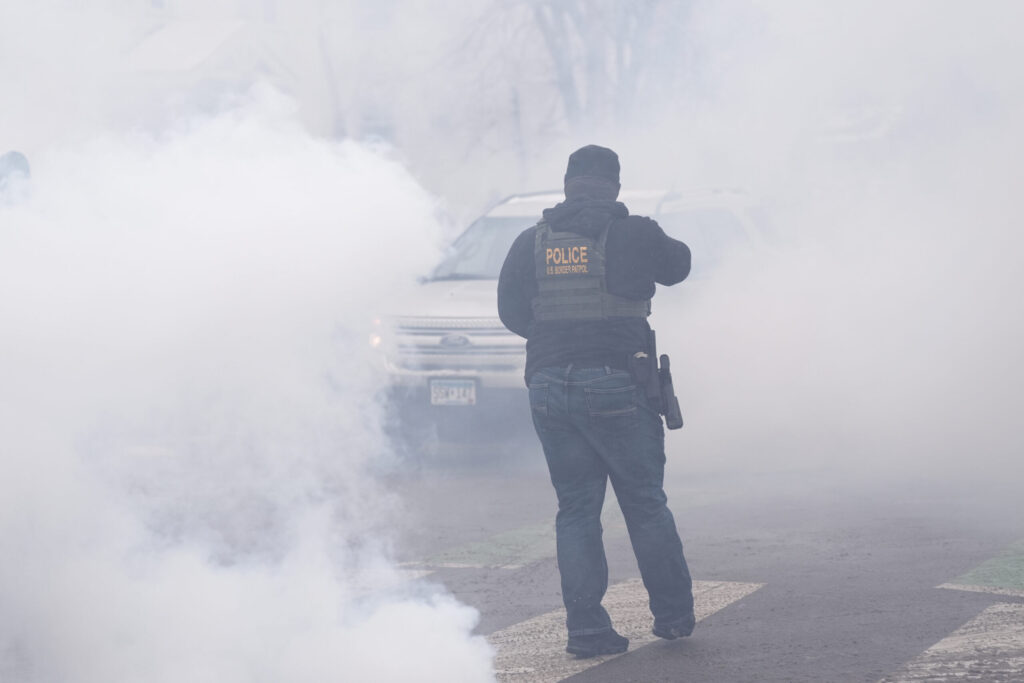Petition to Colorado Parks and Wildlife to delay next wolf introduction could take months
The petition to the Colorado Parks and Wildlife Commission to delay the next round of wolf introductions isn’t going anywhere — not anytime soon.
The agency’s process allows staffers to make a recommendation on whether the rules changes sought in the petition should go forward.
And that could take months.
The petition was initiated by the Middle Park Stockgrowers and supported by 25 other largely livestock groups. Colorado Counties Inc., which counts 63 out of 64 counties as its members, also submitted a letter seeking a delay.
Tim Ritschard, president of the Middle Park Stockgrowers and who spoke on behalf of the petitioners, told commissioners the wolf introduction program has not gone well and noted 24 confirmed depredations in three counties and many more deaths and missing livestock also believed to be the result of wolf attacks.
“Let’s learn from the program’s mistakes,” Ritschard said. “We still do not have an implemented range rider program, carcass management or site vulnerability assessment program.”
He said the state agency may be developing them but they still have not been implemented — and without those programs in place, producers will be right back where they started when the first group of wolves were released in Grand and Summit counties.
Funding for the range rider program has been inconsistent. The livestock group’s last meeting with wildlife staff on the issue occurred in September and just yesterday found out the latest grant had been approved. The one range rider the group hired rode for 127 days and hazed wolves 23 times — in a large territory with a lot of cattle and sheep.
Ritschard pointed out that the commission has the authority to delay further introductions and that it’s not required to do more at a certain pace. The only requirement from Proposition 114 — the voter-approved measure to reintroduce the wolves — is to have the animals on the ground by Dec. 31, 2023.
That has been fulfilled, he said.
“Your mandate is to adaptively manage wolves,” Ritschard said. “You should be willing to change your approach (as issues arise).”
The issue of carcass management is particularly troublesome, ranchers said, as there is no landfill in Grand County. That means burial of carcasses, which isn’t easy when the ground is frozen, the ranchers said.
“What does CPW propose we do?” he asked.
He said he specifically wants to know if the agency would pay to have carcasses removed.
He added that if the wildlife agency has a plan for conflict mitigation, producers don’t know it — and they interact with wolves far more often than the department.
The rules change proposed by Middle Park adds a new article implementing Proposition 114, but would not reopen the wolf plan. It calls for a definition of “chronic depredation,” implement a program to do site vulnerability assessment, and educate producers about it, as well as to implement effective range rider and carcass management programs, hire and train a rapid response team to deal with reports of depredations, and communicate better with producers.
Ritschard asked that the commission either call for a special meeting in December to do rule-making, or at its January meeting, and for the wildlife agency to hold off on any more wolves until the commission can consider the proposed rule.
But based on comments from both John Matter of the Attorney General’s Office, which represents the state agency, and CPW Director Jeff Davis, that isn’t happening anytime soon.
The agency’s policy on rule-making says the division will review and study a petition and then make a recommendation, and that’s what the commission would review.
The petition information packet states that the petition would then be reviewed and discussed by upper-level CPW managers at an “internal Regulation Review Meeting.” That would be followed by notification to the petitioner on the staff’s position on the petition within a couple of weeks after the internal review meeting.
“If staff supports your petition and/or at the direction of the Chair of the Commission, your petition will be placed on the main agenda of an appropriate Commission meeting for discussion,” it then says.
The agency’s website notes the petition has been received by staff but has not moved any further in the process.
“Are we even going to look at it?” asked Commissioner Marie Haskett.
Davis replied that there’s usually interaction between the agency and the petitioner to try to find a solution, sometime in consultation with the Attorney General’s Office.
“We’re still in the review process, so it’s hard for me to say how long it would take for the drafting of the recommendation,” Davis said.
He also noted the agency received about 500 emails asking them to reject the petition.
In response, Haskett said people wonder why producers don’t want to work with the agency or its staff.
“I really wish that both sides would not attack each other,” he said, including attacks on social media against Grand County rancher Conway Farrell, who has lost more livestock to wolves than any other.
Another rancher told commissioners on Friday she’s been spit at and received death threats on her phone.
“I think we need to slow down just a little bit,” Haskett said, noting the state has four years left to keep working on the introduction program.
She said is “very hopeful” that the programs sought by producers are in place before the next calving and lambing seasons start.
“We got pushed into doing all of this, and it’s not fair to anybody,” she said. “We’re behind, livestock producers are behind. We all have to find a way to catch up. And I don’t know what the exact answer is to that. But we definitely need to be ahead of it when we’ll hit the ground this next time.”
Commission Chair Dallas May said it would be “fruitless” to act on the petition until the commission gets the recommendation from CPW, adding the agency has to follow its process.
Callie Scritchfield, who is newly elected to the Rio Blanco County Board of County Commissioners, told the commission the state is not ready for another round of introductions.
The state announced on Thursday that Rio Blanco County was being taken off the list of counties where wolves would be introduced next, given its lack of state lands and the potential impact to elk and deer herds still recovering from the severe winter two years ago.
Proposition 114 doesn’t say when the agency has to release the next group of wolves, Scritchfield said. As for the range rider program, it needs to bring in local people with local knowledge who are trained on wolf behavior and non-lethal options to protect livestock, she said.
She also noted her county’s landfill can’t take carcasses.
Representatives of the groups that signed the petition also pleaded with commissioners to delay the introduction of the next group of wolves, with one attorney pointing out they don’t need to wait for the CPW recommendation.
Kathleen Pritchard — an attorney at Welborn, Sullivan, Meck & Tooley in Denver who works with livestock producers to understand the changing landscape of federal and state laws on wolves — said it’s true the commission’s policy says “whenever possible, the commission should adhere to a two-step process and wait for the division’s recommendation before the commission considers a petition.”
But that’s not a blanket requirement when it’s not possible, and she said that, in this case, it’s not possible to wait any longer to consider the petition. It’s within the chair’s discretion as to when a petition is considered, she said. Otherwise, she said, the chair would be ceding his authority to the division, allowing the latter to make the decision on its own.
Once a petition is on the agenda, it’s up to the commission on whether to grant it, she said.
That would only trigger the rulemaking process on deciding whether to temporarily delay the introduction of more wolves, she said, and granting the petition would just allow producers, the state and the public “to work through these issues before more wolves are put on the ground.”
And not granting the petition now, when the commission does not meet again until January and given that CPW plans to put more wolves on the ground in January, would in effect render the petition moot, Pritchard said.
Wolf advocates, including one man who said he speaks on behalf of the Copper Creek pack, asked the state to not delay.
Rainer Gerbatsch of Arvada said all the conflict programs are being funded and implemented and that any delay would contradict the mandate the wildlife agency has to introduce more wolves as outlined in Proposition 114.
“We need a clear message against resistance to preventative techniques and offers of resistance assistance,” he told the commission.
The agency must work with those “hesitant” to adopt approaches like “low stress work management, he said.
“When everyone plays their part and is willing to eliminate preconceived notions, we can safeguard the public’s wildlife from unnecessary and irresponsible lethal measures,” he said.
The Gunnison County Stockgrowers on Thursday released an estimate of what such a program would cost. For only the first year, which would include equipment to support range riders amortized over four years, it would cost $3.257 million, the group said.
The group added that’s only for “on-the ground implementation of a stand-up non-lethal wolf conflict management program” — it would not include payments to ranchers whose livestock are killed by wolves.
Spread among the 40 working ranch properties in the Gunnison valley, the program would cost on average $81,000 per ranch per year, the group said.
CPW has already spent more than $5 million on the wolf introduction program, although the General Assembly’s Blue Book in 2020 said it would cost approximately $300,000 in 2021-22, $500,000 in 2022-23 and $800,000 per year starting in 2023-24.
The total in those three years would be $1.6 million, the legislature’s estimates said.











